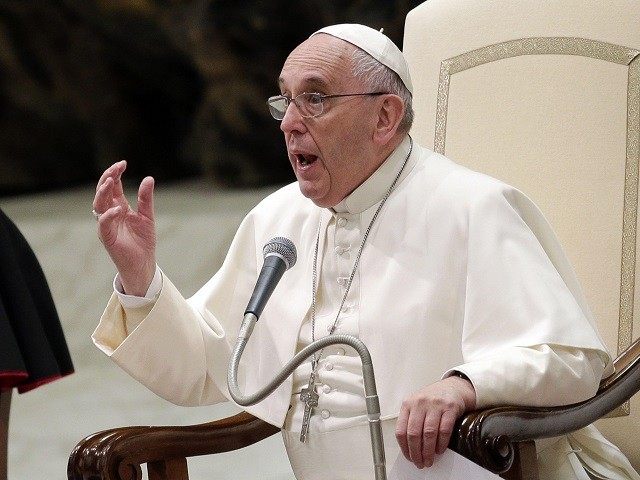In his weekly “general audience” Wednesday, Pope Francis once again employed forceful language in addressing the issue of the elderly in society, saying that the quality of a civilization is shown by the way it treats its older members. Many modern societies make no room for the elderly, he said, and carry in themselves “the virus of death.”
Francis said that this week he would look at problems surrounding elderly people and return to the topic again next week from a more positive perspective.
The Pope clearly suggested that contemporary society has largely marginalized the elderly, and that this trend must be reversed. When we are young, he said, “we are taught to ignore old age, as if it were a disease to be avoided,” then as we grow older, especially if we are poor or sick, “we experience the shortcomings of a society planned on efficiency, which consequently ignores the elderly.”
Advances in medicine have lengthened life, he said, but society has not “broadened” to life!
As a result, as the number of older people has multiplied, “our societies are not organized enough to make room for them, with proper respect and concrete consideration for their fragility and their dignity,” he said.
Quoting his predecessor, Pope Benedict XVI, Francis said that the quality of a society “is also judged by how it treats elderly people and by the place it gives them in community life.” Francis added that “attention to the elderly makes the difference in a civilization.”
“Does a civilization pay attention to the elderly?” he asked. “Is there a place for the elderly? This civilization will go ahead if it is able to respect the wisdom and insight of the elderly.”
“In a civilization in which there is no place for the elderly or they are discarded because they create problems,” Francis said, “this society carries the virus of death.”
Francis remarked that in the West, scholars have called the present century “the century of aging,” where children grow fewer and the old increase. “This imbalance challenges us,” he said, especially since a culture based on profit “presents the old as a burden, as dead weight.”
According to this mentality, Francis said, “not only do they not produce, but they are a burden besides.” And the result of thinking this way, Francis said, is that “they should be discarded.” Nobody dares to say this openly, he said, “but they do it!”
“We are used to discarding people,” Francis said. “We want to remove our growing fear of weakness and vulnerability; but in doing so we increase the elderly’s anguish over being barely tolerated and abandoned.”
Francis said that we run the risk of becoming a society that does not allow the elderly to participate, to have their say, because we think that only the young can be useful and can enjoy life. “These elders should be rather,” Francis countered, “the reservoir of wisdom of our people, for the whole society.”
The Pope recalled visiting an old folks home in Buenos Aires and asking the people how often their children and grandchildren came to visit them. “I remember an old woman saying to me, ‘they came for Christmas.’ We were in August! Eight months without being visited by children, abandoned for eight months! This is called mortal sin, understand?”
In the tradition of the Church, Francis said, there is a wealth of wisdom rooted in Sacred Scripture that has always supported a culture of closeness to the elderly. “The Church cannot and will not go along with a mentality of intolerance, and even less of indifference and contempt towards old age,” he said. “We must awaken the collective sense of gratitude, of appreciation, of hospitality, which make the elderly feel like a living part of the community.”
“The elderly are not aliens,” he said. “They are men and women, fathers and mothers who walked the same road before us.” They are also men and women from whom we have received a lot, he said. “We are the elderly: some sooner, some later, but inevitably nonetheless, even if it doesn’t seem like it. And if we do not learn to treat the elderly well, that is how we will be treated.”
“All of us elderly people are a little fragile,” Francis said. “Some, however, are particularly weak, many are alone, and marked by illness.” How will we treat them? Will we abandon them to their fate? A society without neighborliness, where gratuitousness and affection with no strings attached are disappearing, “is a perverse society,” he said.
“The Church,” he said, “faithful to God’s Word, cannot tolerate this degeneration. A Christian community in which neighborliness and gratuitousness were no longer considered indispensable, would lose its soul.”
“Where there is no honor for the elderly, there is no future for young people,” he said.
Follow Thomas D. Williams on Twitter @tdwilliamsrome.

COMMENTS
Please let us know if you're having issues with commenting.